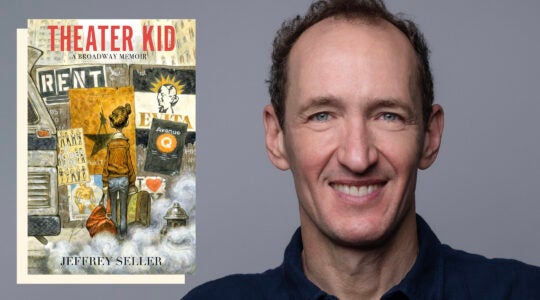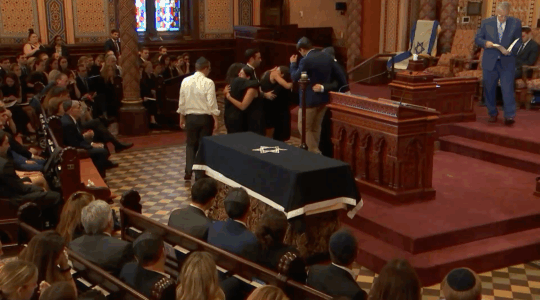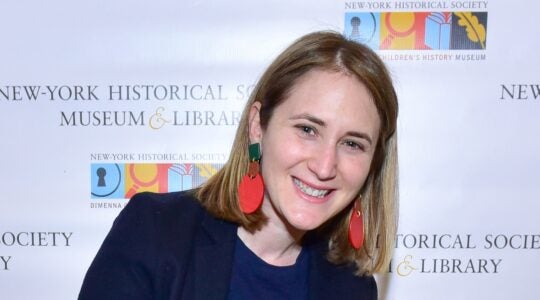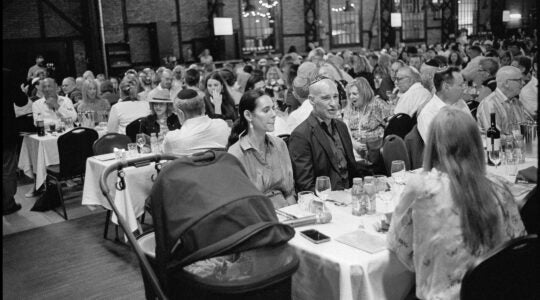Debbie Weissman was one of the early activists in changing the status of women in Jewish life, yet few in JOFA today likely know her name—possibly because she made aliyah in 1972, before the internet or cheap long-distance phone calls. She made her mark in Israel in the field of Jewish education, as head of the English-speaking section of the Jewish Agency’s Institute for Training Youth Leaders from Abroad and later director of the Kerem Institute for Teacher Training. She also contributed to the worldwide effort for interreligious dialogue, becoming the first woman president of the International Council of Christians and Jews.
Along the way she has “lived in interesting times” and traveled to many history-laden places, including Soviet Russia, Ukraine, Poland, Germany, India, South Africa, Australia, New Zealand, Bosnia, Hiroshima, and the Vatican. Her memoirs read like both a travelogue to far-flung Jewish (and non-Jewish) communities and a firsthand account of recent milestones of feminist and interreligious history.
Ms. Weissman had her “aha” feminist moment early on, in high school, when she wanted to run for national president of Young Judaea after serving as vice president, and the Israeli shaliaḥ tried to dissuade her, saying that a boy would better represent the organization. She ignored his advice, ran for president, and won.
Her feminist proclivities and achievements are strands that have run throughout her life. In the early 1970s she was a member of the religious feminist study group qua consciousness-raising group, Ezrat Nashim. When doing graduate-level research, she chose to examine the Bais Yaakov movement in prewar Poland. In 1985 she taught a course on Jewish women at the Hebrew University School for Overseas Students, which was likely the first university-level course on Jewish women in Israel. After attending a JOFA Conference in 1997, she became involved in the founding of our Israeli sister organization, Kolech. She records that Torah giant Rav Aharon Lichtenstein was present and supportive at the initial meeting of Kolech. She continues to fight for greater representation for women at Jewish conferences and in communal forums. She observes, “Being the only woman in a roomful of Jewish men is often more difficult than being the only Jew in a roomful of Christians.”
Weissman was also deeply involved in the founding (and ongoing life) of Kehillat Yedidya, a spiritual and davening community in Jerusalem that has pioneered many innovations in women’s participation in services and in decision making. She describes with pride and in detail the authority structure and decision-making process within Yedidya, which is non-hierarchical and democratic. Although there are many rabbis and scholars, male and female, in the community, they are consulted about halakhic issues but do not have more clout than anyone else. She describes in depth the changes the community has experienced, and how its evolution has influenced other communities, including the partnership minyanim.
Similarly, Weissman’s involvements in interreligious dialogue and in seeking Israeli-Palestinian understanding have been lifelong, ongoing commitments. She began her interreligious journey in 1988 with an invitation from Blu Greenberg to attend a conference in Toronto that brought together women of nine different religions from around the world to discuss religion, politics, and feminism. She ended up choosing to go into “retirement” so she could serve for six years as the president of the ICCJ, traveling the world for that organization and coming happily back to her home in Jerusalem.
She describes herself oxymoronically as a “hopeful pessimist”—pessimistic about her chances to live to see peace in the Middle East, but still optimistic that “the pursuit of peace is a religious imperative.” She rejoices in the positive changes she has seen in her lifetime, particularly in the “major changes in the role of women within Judaism.” Perhaps this is why she has shown such a natural ability to dialogue—she can see the glass both half empty and half full at the same time.
Roselyn Bell is the editor of the JOFA Journal. She recently completed an M.A. in Jewish Studies from Rutgers.
Posts are contributed by third parties. The opinions and facts in them are presented solely by the authors and JOFA assumes no responsibility for them.
If you’re interested in writing for JOFA’s blog contact dani@jofa.org. For more about JOFA like us on Facebook or visit our website.
The New York Jewish Week brings you the stories behind the headlines, keeping you connected to Jewish life in New York. Help sustain the reporting you trust by donating today.




